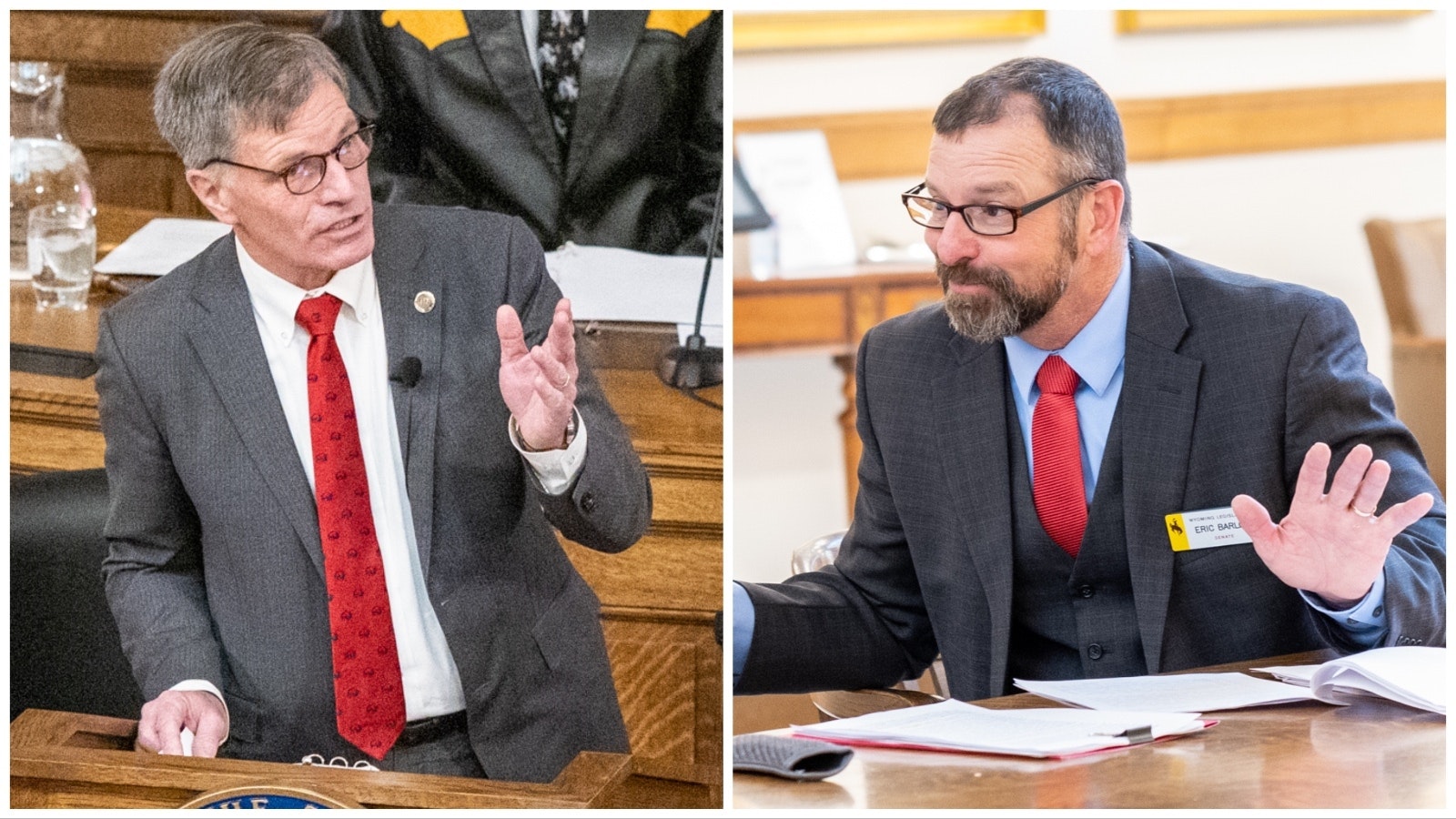The Wyoming Management Audit Committee considered a proposed bill Tuesday that would give state lawmakers more scrutiny and removal powers of governor appointees.
The bill clarifies that state Senate confirmation of a governor’s appointment is only effective until the end of that governor’s four-year term or until the appointee’s term expires, whichever comes later.
Each time a governor is reelected, all of the appointments that require a Senate confirmation would have to be approved again by the body unless a term hadn’t expired. Current state law only requires Senate approval of a new appointee when the previous one’s term expires.
The Wyoming Constitution doesn’t specify a process for gubernatorial appointments. In 1979, the Legislature established an official confirmation process, which was amended in 1996 to require that public office-holding appointees share the same party affiliation as their predecessors.
Gordon Doesn’t Like It
A representative for Gov. Mark Gordon told the committee he has some concerns about the bill.
Betsy Anderson, the governor’s deputy chief of staff, said the legislation could politicize previously apolitical agency positions and make it difficult to hire new directors for organizations like the Department of Revenue and Department of Environmental Quality.
“If directors believe that their job is dependent on Senate confirmation every four years, they might not be willing to serve,” Anderson said.
Rep. Landon Brown, R-Cheyenne, co-chairman of the committee, agreed and said a job guarantee of only four years might discourage qualified candidates from applying.
He also shared Anderson’s concerns about a possible over-politicization to the appointment process.
Brown said he considered bringing an amendment that would perform an opposite function of the currently written bill, allowing an appointee to remain a position as long as the governor who appointed them remains in office.
“We don’t want directors bowing down to the most boisterous (senators),” Brown said. “Whether or not they’re making the right decision based on constitutionality or whether they’re making the right decision based off the people that are screaming the loudest and whether that’s going to put them in a position of keeping their job.”
Politicization
Sen. Mike Gierau, D-Jackson, said during his time in the Senate, he could not remember a time when he felt any member was casting a vote for or against a nominee based on the performance of their duties or a specific decision they made and believes the intent of the bill is to allow a new governor to make changes to appointees once taking office.
But that’s exactly what happened when the Legislature met earlier this year, when Sens. Tim French, R-Powell, and Dan Laursen, R-Powell, made a successful motion to reject Gordon’s request to reappoint Powell resident Dustin Spomer to the Industrial Siting Council.
Laursen told Cowboy State Daily at the time he voted against Spomer, a fellow Republican, because he didn’t like his politics and was concerned that Spomer’s political leanings could negatively affect some of the decisions he makes on the council.
“We just don’t get along with each other,” Laursen said of Spomer. “Politically, we don’t align.”
Spomer was eventually confirmed on a second Senate vote.
Anderson described the current confirmation process as “opaque” and lacking established criteria.
She also expressed concern that the Senate might re-confirm appointees based on internal policy decisions that directors have made. Anderson said the confirmation process should be limited to a candidate’s competency and integrity.
She also believes the proposed legislation raises some questions about separation of powers between the executive and legislative branches of government.
“By requiring these directors to be re-confirmed upon the governor’s reelection, I think you could argue that the Senate has now inserted itself into management decisions of the executive branch by trying to remove qualified executive branch officials,” Anderson said. “That really is the power and prerogative of the governor.”
Mixed Feelings
Sen. Bo Biteman, R-Ranchester, wasn’t persuaded, saying the bill allows a new governor “to take a fresh look at things.”
Sen. Eric Barlow, R-Gillette, co-chairman of the committee, also argued in favor of the legislation and said clarifying the current laws on appointments is important.
Prior to Gordon and former Gov. Matt Mead, Barlow said it was standard practice that gubernatorial appointees were resubmitted to the Senate for approval after each election.
“The longstanding application has been they would be submitted,” he said.
Barlow also said even if the legislation fails to pass into law, the Senate still has the ability to make its appointments time limited when it gives an original confirmation.
Sen. Tara Nethercott, R-Cheyenne, said although she believes the intent of the bill was only to establish clarity about the existing confirmation process, she said Gordon’s opposition to the legislation leads her to oppose it as well.
The legislation will next move on to Senate leadership, who will decide if the bill will be discussed for committee sponsorship at a future Management Audit Committeemeeting.
Leo Wolfson can be reached at leo@cowboystatedaily.com.





